Recruitment Roadmap
Recruitment's a long windy process. There's so much subjectivity and clutter of information out there. Fret not, we've got you covered.
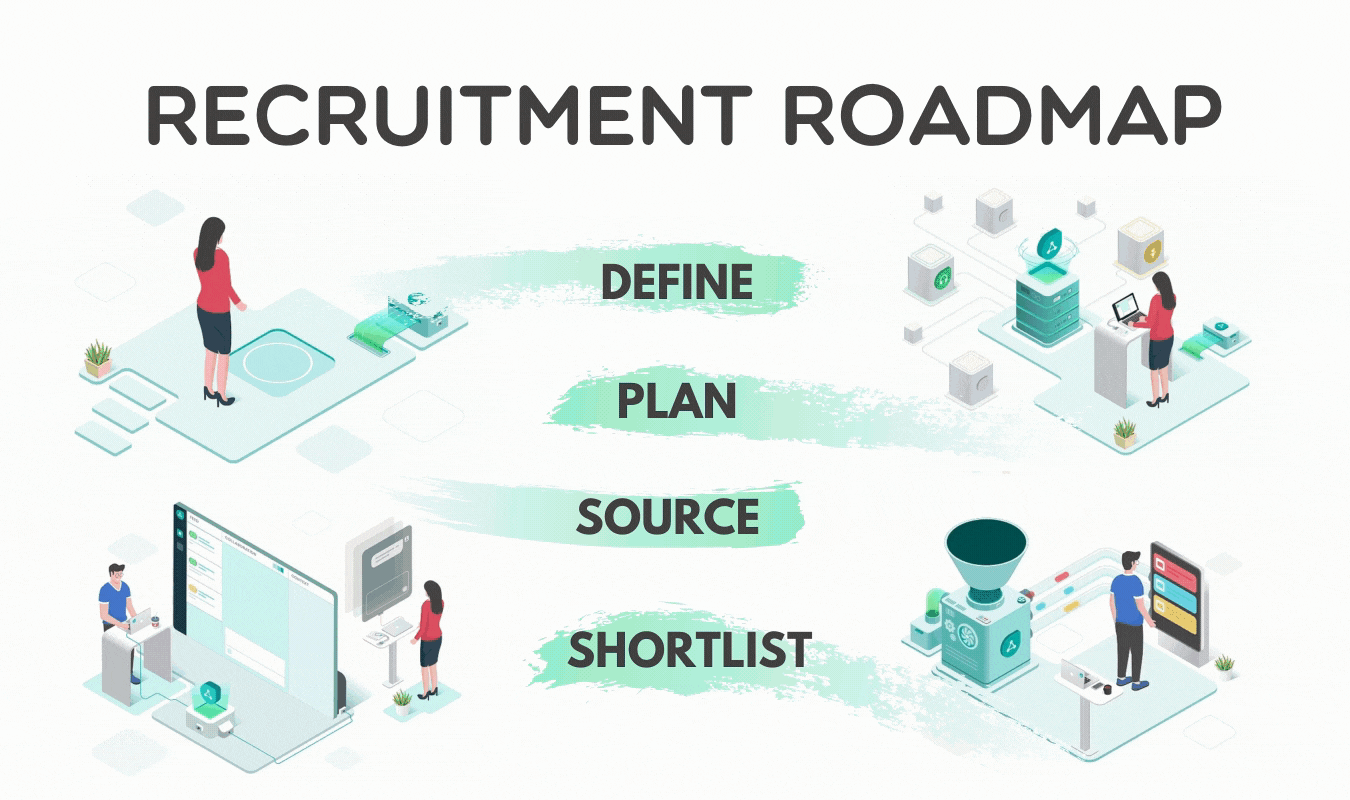
Hi, welcome to Vita blog where we discuss the challenges and ask the hardest questions in recruitment. We work closely with startups, enterprises and leading IO psychologists to deliver to you, content that will prepare your company for growth. Over the past few months, we've looked at recruitment, from the point of view of a founder of a startup, or a senior executive of a large corporation. The reason I'm specifying this, is the recommendations and findings are compiled with a trickle-down ideology in mind. We believe the value system of a recruiting process is carried out based on the process designed at the top.
We've specified 'startups' in this series, simply because it was born out of requests from fellow founders to put our reseach and findings into some readable format. To those who requested for it, thanks for the prompts, we finally got to it!
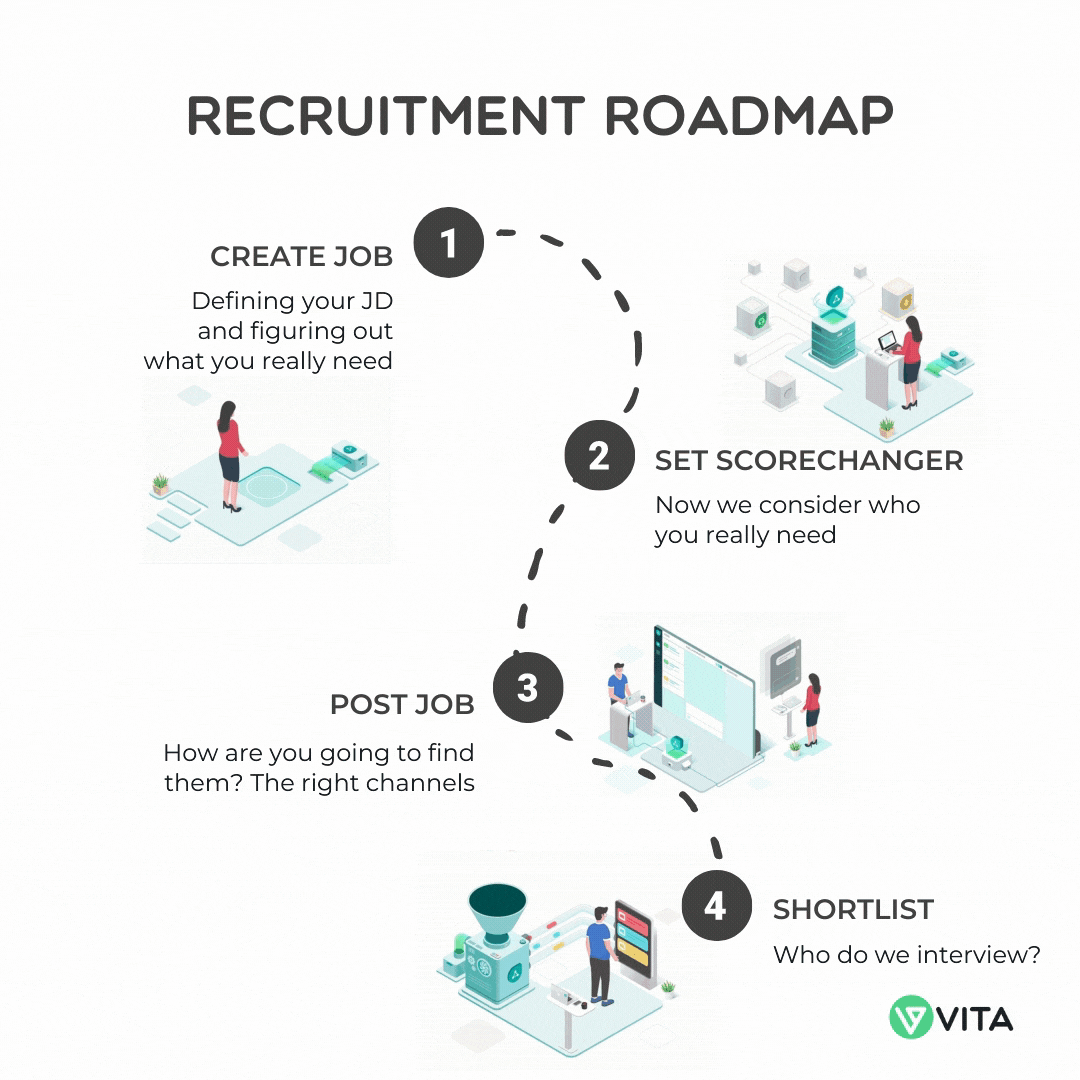
We've put together a simple 4 step guide to get you started on your journey to recruitment. But before we can even get into any of that, lets put it all in the right frame of mind.
Now, I find it important to do this, because, in the duration of our discovery, we've heard cases of recruiting using keyword matching and filling roles entirely based on the candidate's ability to do a job. And if that's all you're aiming for, you're never going to create value on a serious scale. This is exactly the kind of situation we're working on and why we decided to put these together.
Let's take a step back and break this down from the core of a business. First and foremost, this entity we call a 'business', an 'organisation'. What is it?
Organisations?
If you're here you're interested in building an organisation. To empower this, you clearly care about talent. The contents of this guide we're putting together are aimed at helping along that process.
An organisation is a group of people. To build a world-class organisation you need to put together a world-class team of people, and that's where we start.
Simply put, with the wrong people working on the right problem, there's almost no chance of succeeding on a scale that matters.
Sales give the company a road to run on and management makes sure all the parts function together, but without the right people, even the best of products with the best of management stand no chance against a company functioning as a well-collaborated machine. In easier terms, you can get away with it at first, when it's just you and the early founding team around you, but a team of that size can never effect change on the scale you're looking to effect.

Important to realise early on, up until a Startup ceases being a Startup, and emerges into its Scale-up lifecycle, the function of recruitment is owned and perfected by the founders themselves.
Allow me to say that again, a founder, is the leader of recruitment, up until the company completes the startup stage. After that, they take the position of effectively a "function owner". The end of liability stops with them, so no matter what, top management answers for recruitment.
"Oh, that's easy administrative work. I could get an intern to browse through resumes and find people who fit the bill."
If you're the kind of person that finds this preposterous, I salute you, and give you pass, onto the next topic of discussion. However, if this statement makes sense to you, let me stop you right there. Now that we know that a company, an organisation is essentially a group of people, we ask the next degree of questioning, does it really matter who this group of people are?
When you start to realise that the top 20% of your company actually does 80% of your work, things start to come into perspective.
The relationship between quality of talent and business performance is dramatic - McKinsey report
We wanted to, rather needed to, learn where this thought process stemmed from. So we looked into it and realised most people see recruitment as an administrative process, and that's where the disconnect is. Wanting not to dive too far into this, I recommend giving this short article a read. Recruitment's strategic place in the company calls for significantly higher attention than what it's afforded in most situations.
It is important to understand that recruitment is a strategic role and not an administrative one. It is sad that nowadays, many people see their HR as paper-pushers, data entry staff and it's often the department treated with the lowest respect.
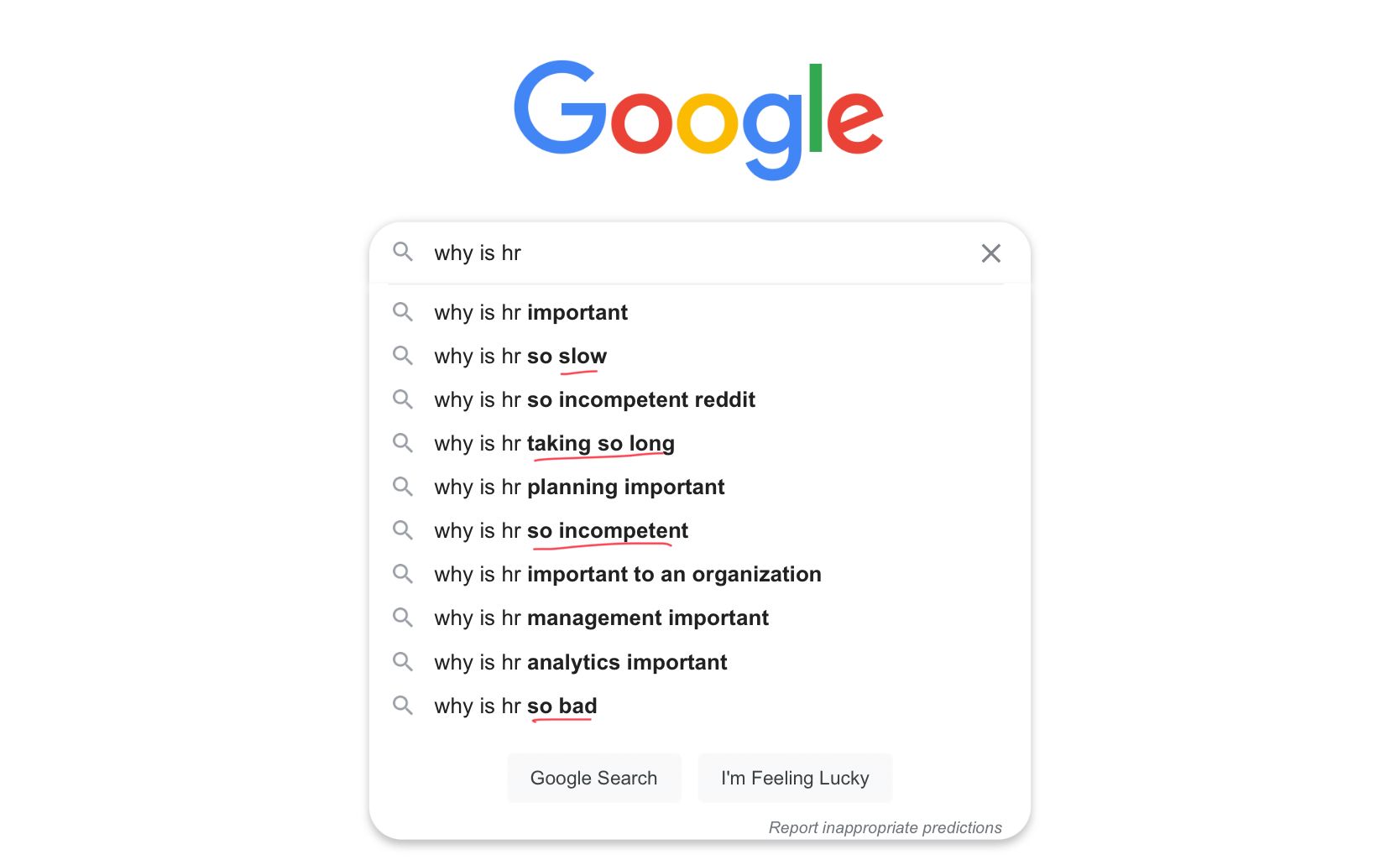
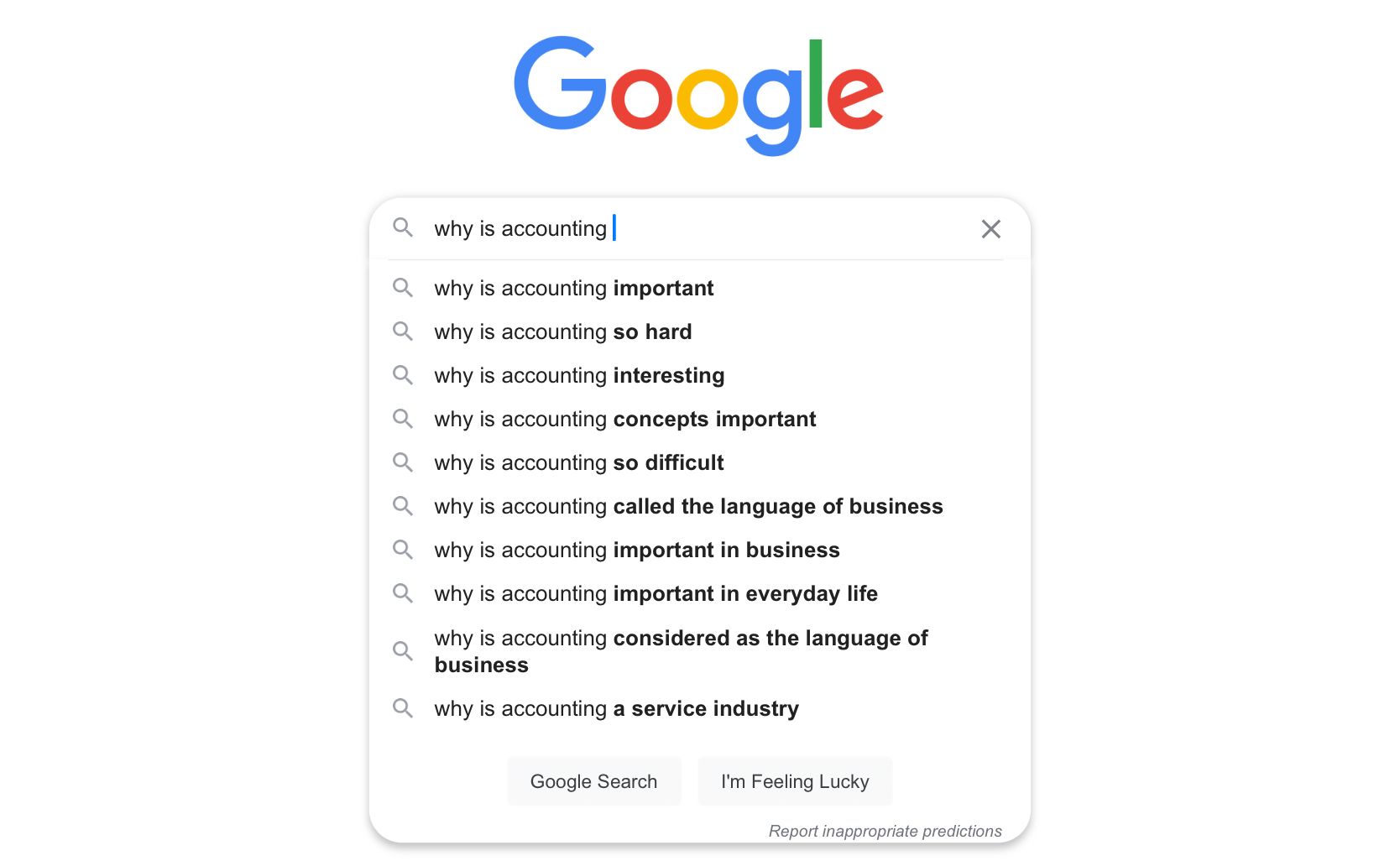
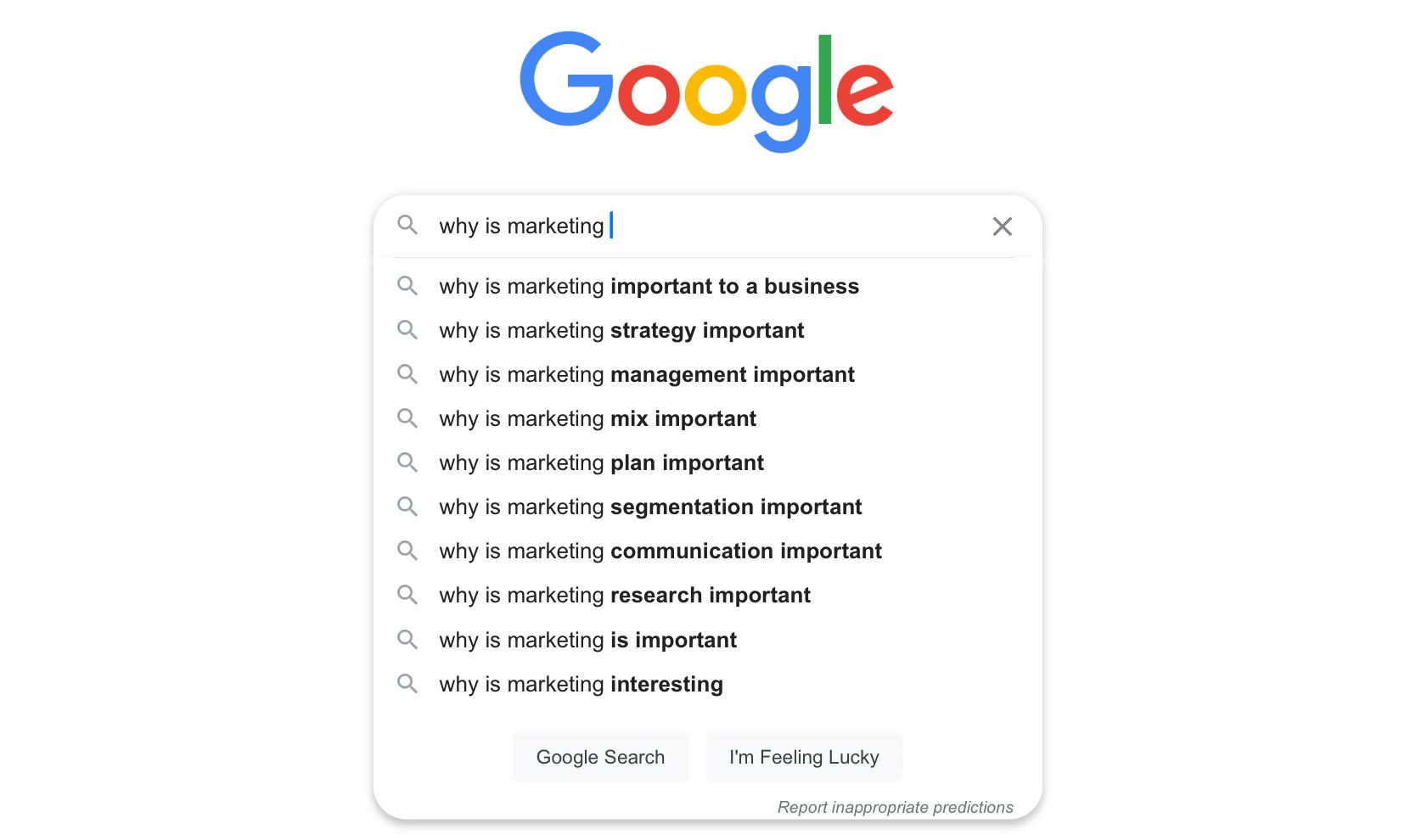
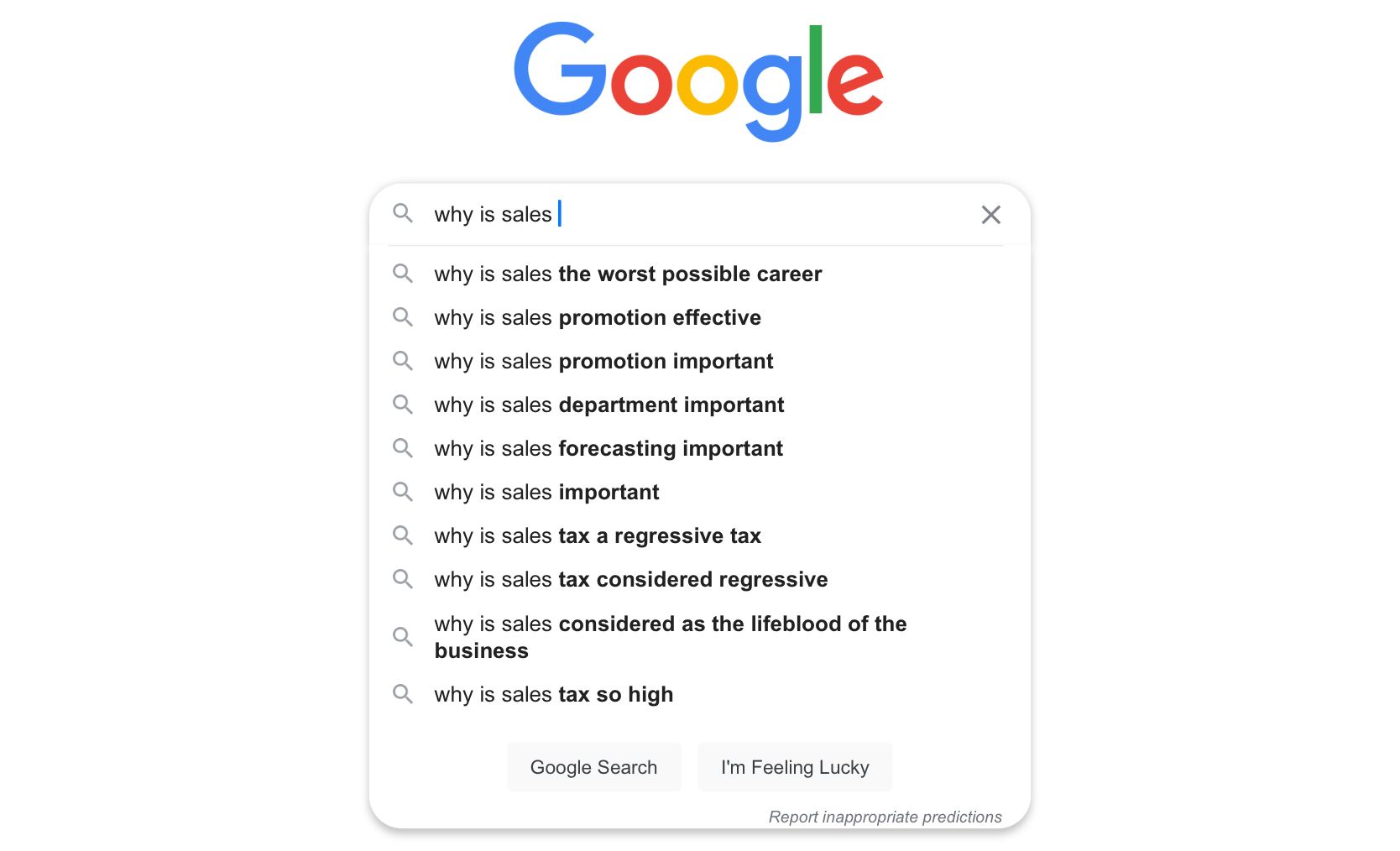
This, a lot of the time, is a problem of poor management where people recruit entry-level screeners without providing adequate training on how to recruit talent, delegating "time-consuming" tasks to them which they just don't want to do. However, more than filling the ranks of your HR department, we believe it's important to start from the top.
Often overlooked, and blissfully complicated, the kind of person you'd need to fill a senior position in your 'people and talent' division, essentially holds the key to the lifeblood of your startup growth.
Leadership in recruitment
Now, this should only be an issue for a company scaling up, having found some serious traction, because as we all know, right until then recruitment's a founders game. When companies do reach the scaling stage, however, they start to consider who is worthy of taking on this mighty task, held so dear to the organisation?
Knowledge of the field, experience handling people, and dealing with recruiting is a must. However, as Lou Adler suggests in his article linked in this blog, contrary to popular belief, experience as a recruiter prior to the role isn't necessary for a great recruitment leader. Rather, backgrounds in sales, marketing, operations, engineering or finance tend to perform very well in this position. They widen the search, keep an eye out for the right person, and most importantly, consider the right cultural fit.
I highly recommend this article if you're at that stage and looking into the matter. In the next section, we talk about instituting processes to ensure quality control and streamlining of systems for success at a larger scale. But a good leader knows the keen balance between over systematising to the point where following systems chokes the function (onerous, redundant, and unnecessary tasks that are characteristic of modern recruitment departments), balanced with looser guidelines, trusting your leader to know where to exercise judgement. And that's the key consideration of a head of talent.
Humane Resources
With the rise of virtual recruitment, remote workplace is predicted to stay long past the COVID period, recent LinkedIn predictions for the future of recruiting asks the question "How can you ... capture your workplace culture, and get that in-person feeling from someone through a computer screen". This is an entirely new challenge, moving 2 steps up the ladder. First is the understanding of the person in front of you, which has it's own set of challenges, trying to identify if this is the kind of person to form your top performers or disappear into the corporate ladder. And now the added complexity when the person in front of you... isn't even in front of you.
LinkedIn's report recommends embracing hybrid hiring. Being able to deliver that human touch, personal assessments, understanding a person without the constraints of judging someone based off of a short video call, and we're all for it. Automation's important in the recruitment process, no doubt. It's impossible to scale and maintain that quality of hire without getting some of the processes streamlined with the array of smart technology out there. But the key is knowing which part to automate, and which processes would be a cardinal sin to take out the human element.
Human resources is inherently a human process, quite sure the name's given that away, and much of the tech coming about today's strives to strip it of exactly that, replacing the human element with AI, rather than supplementing it, but that's a whole other article.
Now that you know the importance of strategic recruitment, you are too far down the rabbit hole, there is no turning back, let's dive in to the specifics. In this series, we will not be discussing end-to-end recruitment, but mainly on planning, sourcing and selection. We have identified these as the most vulnerable processes in the recruitment pipeline. Happy reading!
- Defining - Why do you need someone
- Planning - 3 key considerations
- Channels - How to get interested talent
- Shortlisting - Selecting the best fit candidates
